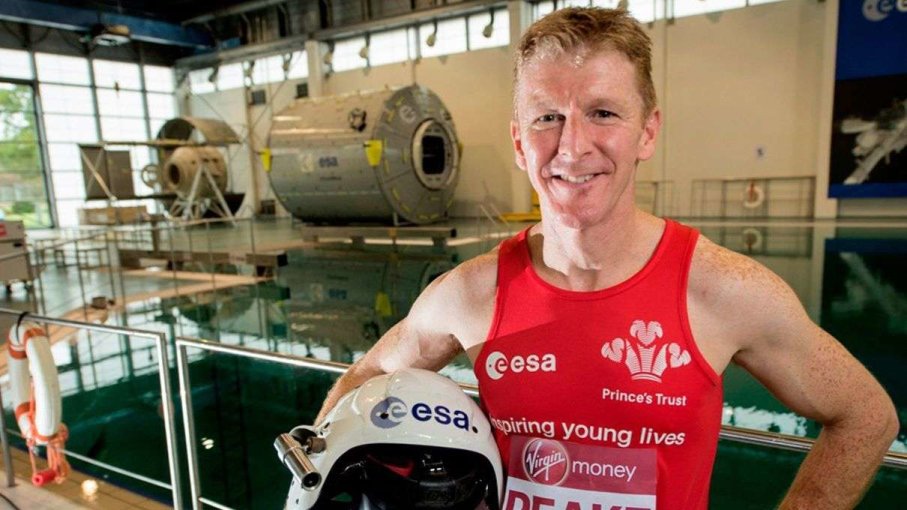Tim Peake Ran a 3:35:21 Marathon — From Space

On Sunday, April 24, Tim Peake participated in the London Marathon. But unlike the other nearly 40,000 runners, Peake, 44, did so from the comforts of the International Space Station 250 miles (402 kilometers) above ground. And he finished in 3:35:21. In case you’re not a runner, the 2017 Boston Marathon qualifying time for a male ages 40-44 is 3:15. Peake pounded out 26.1 miles (42.2 kilometers) with an average page of 8:13. Pretty speedy.
The British-born astronaut is only the second person to ever complete a marathon in space. The first was NASA astronaut Sunita Williams, who ran a marathon on board the ISS back in 2007 in 4:24 in conjunction with the Boston Marathon. Williams must have itchy feet because she also set a record for the most time spent on space walks for a female astronaut.
Running a marathon in space might sound pretty simple. After all, you don’t have to carry all that weight around, right? But the fact is it’s pretty tricky. You’ve got to strap yourself into a harness in order to maintain contact with a treadmill. And all astronauts have to exercise regularly in order to offset the bone and muscle loss that they experience while in space.
And Peake didn’t have to just stare at the interior wall of a space station; he was using a virtual reality app that gave him a view of the marathon course. As he ran, the video reflected where he would be if he were back on Earth. And runners in London who used the Run Social app to track their progress populated Peake’s view — he could see virtual representations of people actually running the race hundreds of miles below him.
Although Peake made good time, it wasn’t quite fast enough to beat his personal best of 3:18:50. And it’s a far mark from Eliud Kipchoge’s winning time of 2:03:05. But once you factor in the distance the ISS traveled in that time — it orbits Earth every 92 minutes or so — you realize he moved more than 60,000 miles (96,561 kilometers).
It all sounds pretty exhausting, but there’s not much time for rest when you’re doing science in space. Peake ran the marathon on one of his few days off and was back to work again the next day.



 Creators of mankind
Creators of mankind Description of “Tall white aliens”
Description of “Tall white aliens” Where they came from?
Where they came from? About hostile civilizations
About hostile civilizations The war for the Earth
The war for the Earth “Tall white aliens” about eternal life
“Tall white aliens” about eternal life Video: “Nordic aliens”
Video: “Nordic aliens” Aliens
Aliens Alien encounters
Alien encounters The aliens base
The aliens base UFO
UFO Technology UFO
Technology UFO Underground civilization
Underground civilization Ancient alien artifacts
Ancient alien artifacts Military and UFO
Military and UFO Mysteries and hypotheses
Mysteries and hypotheses Scientific facts
Scientific facts


















